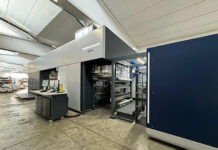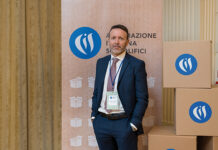The philosophy of this cardboard giant is to give life back to paper. The Group Pro-Gest, born originally in the Treviso province and today the main Italian player in the paper industry, wanted to celebrate the human and entrepreneurial journey of Zago family on its 50th anniversary party and presented the new book by the President and founder Bruno Zago “The future is paper”, published by Mondadori.
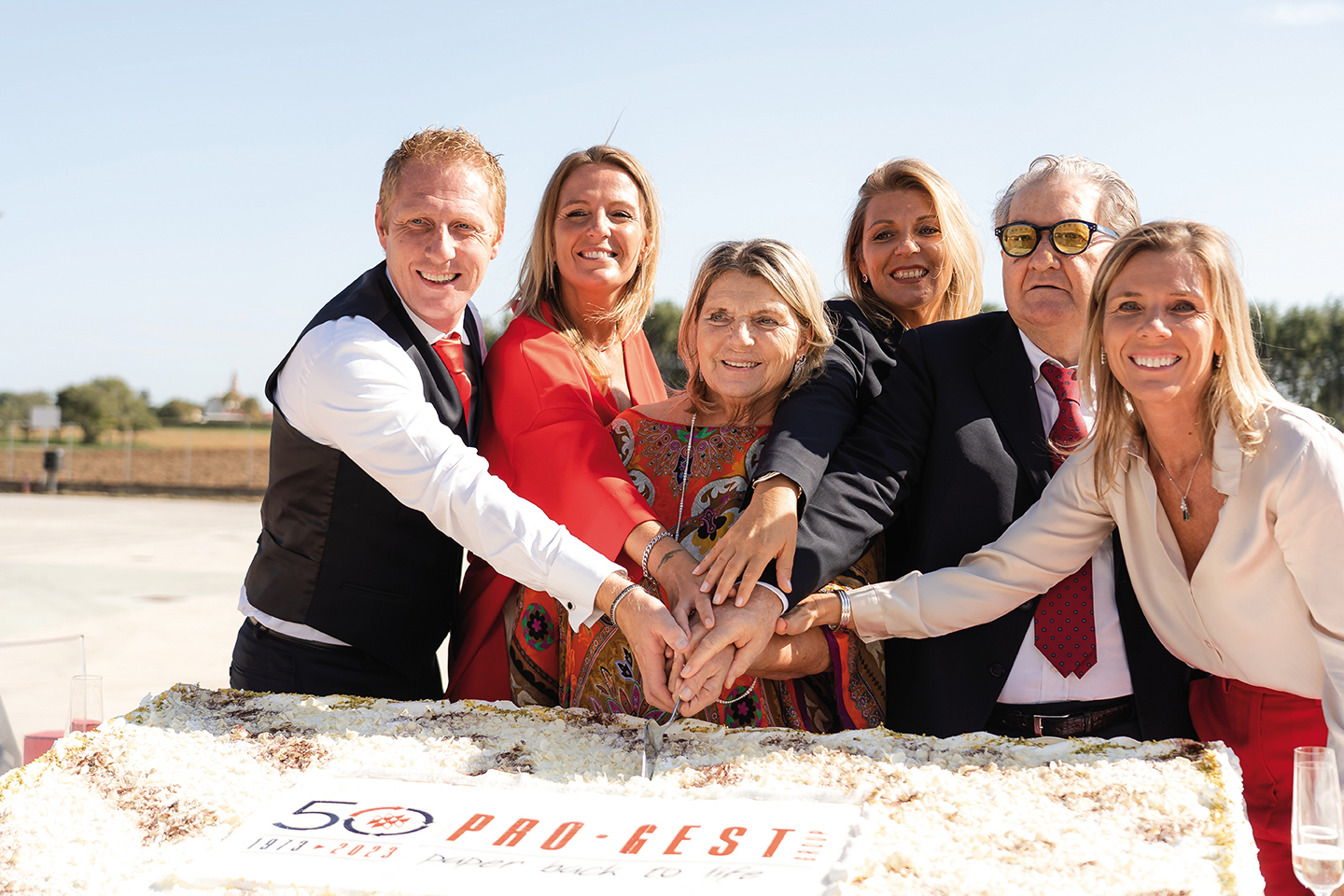
Many institutional guests took part in the event, which took place on 6 October at Group’s main headquarters, Ospedaletto di Istrana (TV), to delve deeper into the crucial themes of circularity, recycling and the relationship between the company and the territory: Regional Councilor Elena Donazzan, Stefano Marcon, President of the Province of Treviso, Leopoldo Destro, President of Confindustria Veneto Est, Mario Pozza, President of Unioncamere Veneto, protagonists of the talk “Enterprises as protagonists of the territories. Pro-Gest’s relationship with its territory”.
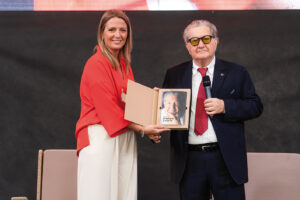 To remember and retrace the fifty-year history of Pro-Gest, the new book by President and founder Bruno Zago, entitled “The future is paper”, written by him and published by Mondadori, was presented during the event. The story of an entrepreneur who anticipated many of the issues that are very contemporary today. A book that speaks of his family and of an increasingly globalized market, that of paper, cardboard and packaging, which has experienced numerous technological evolutions in recent decades and has been at the center of important social, economic and cultural transformations.
To remember and retrace the fifty-year history of Pro-Gest, the new book by President and founder Bruno Zago, entitled “The future is paper”, written by him and published by Mondadori, was presented during the event. The story of an entrepreneur who anticipated many of the issues that are very contemporary today. A book that speaks of his family and of an increasingly globalized market, that of paper, cardboard and packaging, which has experienced numerous technological evolutions in recent decades and has been at the center of important social, economic and cultural transformations.
An adventure that began 50 years ago with a loan that didn’t let sleep
 It was 1973 when a worker, Bruno Zago, with little means but with clear ideas about the future of a material, paper, which at that time was little-used, began producing cardboard boxes, borrowing twenty million lire (today around 150 thousand euros): but sleepless nights did not last long because in six months the debt was repaid and in 1973 Trevikart was born in Zero Branco (TV).
It was 1973 when a worker, Bruno Zago, with little means but with clear ideas about the future of a material, paper, which at that time was little-used, began producing cardboard boxes, borrowing twenty million lire (today around 150 thousand euros): but sleepless nights did not last long because in six months the debt was repaid and in 1973 Trevikart was born in Zero Branco (TV).
Half a century later nothing has changed, because all the Group’s activity has paper and cardboard at its center, but probably the peculiarity that has truly characterized Pro-Gest and allowed it to grow constantly is its ability to vertically integrate the processes: today the Group, in addition to its main headquarters in the province of Treviso, uses four waste paper collection platforms, six paper mills, four corrugators, six box factories, three integrated factories and four other sites for special productions. The process begins within the collection platforms and in the paper mills, where are produced, through the recovery of paper waste and cellulose fiber, 1.3 million tons per year of paper for corrugators with a market share of 29%. In total there are 28 companies and 1300 collaborators.
On the occasion of the anniversary there was much emotion for people present at event but also for Bruno Zago, now 73 years old, who declared: “today we celebrate 50 years of a reality that is moving forward thanks to my four children, Benedetta, Alessandra, Valentina and Francesco, to whom I managed to convey the will and ambition to always do better and something more; I started with a pinch of recklessness and a lot of courage but I was and am convinced that the material of the future is paper, because it is circular, biodegradable, resistant, ductile and now, thanks to research, capable of replacing other materials even for packaging food”.
A history punctuated by acquisitions and integrations
After the birth of Trevikart in 1973, in the mid-1980s the first corrugators in the Veneto region started to operate, Ondulato Trevigiano and Plurionda, factories specialized in the production of corrugated cardboard sheets. In 1987 was fouded Unioncart, specialized in the production of die-cut boxes, and in 1988 the Group purchased Cartitalia, its first paper mill, at a public auction.
In 1992 Cuboxal, which represents a turning point in the world of food packaging, because it is specialized in the production and marketing of pizza boxes with exports all over the world, became part of Zago family holding and in 1996 the Group acquired a new paper mill in Camposampiero (PD) to further increase the production of raw materials; in 1998 Pro-Gest continued its expansion towards central Italy in the paper manufacturing sector with the purchase of Tolentino (MC) paper mill. With Bergapack in the Treviso area, acquired in 2004, the Group specializes in heavy and large-sized packaging. In 2005, the Villa Lagarina paper mill was taken over, a historic and prestigious plant in the province of Trento, strategic for the markets of Central Europe; at the same time, the Group established an important commercial relationship with World Cart of Cremona (MB) specialized in the transformation of disposable products such as handkerchiefs, napkins and toilet paper. In 2009 was born Trevikart Greendesign, which studies and creates cardboard solutions for packaging, furnishings and displays. Furthermore, the purchase of Cartonstrong, one of the largest corrugators in Italy in the Milan area, was made official. In 2010 Pro-Gest established a solid commercial relationship with the historic Ondulati Maranello, an important company in Emilia Romagna for industrial and food packaging. In 2014, the Tuscan companies Ondulati Giusti and Cartonificio Fiorentino also joined the Group to consolidate its presence in Tuscany.
2015 marks the year of the strategic expansion of Trevikart which acquires two new plants in Modugno, near Bari, and in Carnate near Milan. And in 2016 a suspended factory, the Mantua paper mill, comes back to life thanks to a strong investment, 300 million euros in total, where, already at the end of 2020, the largest paper machine for corrugators installed in Italy begins production, with a capacity of 500,000 tons/year.
In 2017 Pro-Gest began a phase dedicated to strengthening its plants: in 2018 it invested in the recycling paper collection platforms in Veneto and at Group’s paper mills, as well as strengthening international purchases of raw materials, starting a collaborative relationship with the newly founded ARS.eco, chaired by Alessandra Zago which operates in the United States.
In 2019, a new division of Trevikart was launched: Trevibag, which is located downstream of the supply chain with the aim of further integrating the finished product, producing shopping bags, handbags and bags made of recycled and virgin paper.
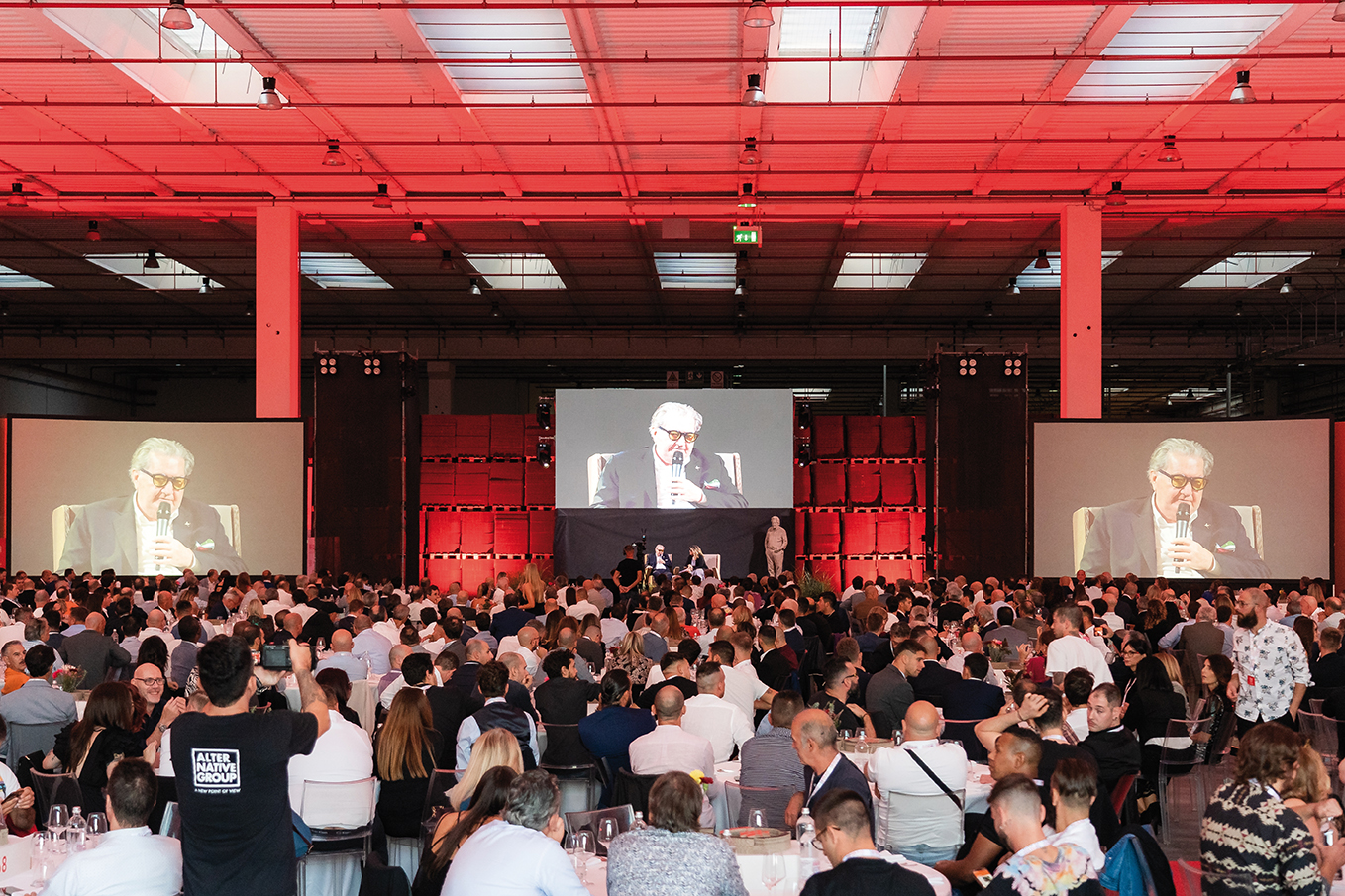
Projected towards the future with determination and skills developed over time
“If I look back I am very satisfied with what I have done and achieved so far, we have managed to offer the right product at the right time: everything was born from an intuition, from the desire to succeed and from that dose of recklessness that allows you to achieve what previously seemed unthinkable. Thanks to the work of many people, and first of all my family, over the years we have managed to create a reality that has been able to grow impetuously when there was the opportunity and resist in moments of greatest difficulty, demonstrating inventiveness and tenacity”, says Bruno.
It is undeniable that we are going through a delicate economic situation, in fact the packaging sector is affected by the decrease in internal demand and the general climate of uncertainty which affects consumption habits. “But I am optimistic despite the difficulties of the last few months, during which we recorded a reduction in revenues and volumes compared to the same period of 2022, I am sure that we will start growing again starting from the first part of 2024”, concludes Bruno.








